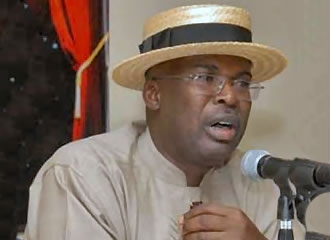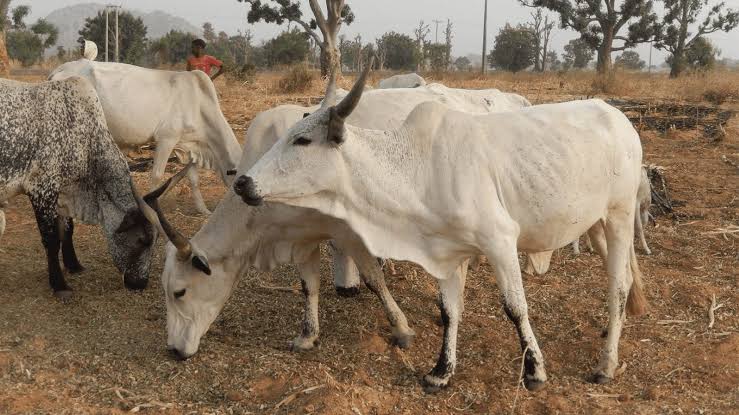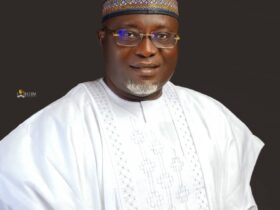In a bid to rejig the Dairy Value Chain, Federal Government has launched the National Dairy Policy (2023- 2028) to guide both public and private sector investors in the Nigerian dairy industry for the attainment of self- sufficiency in milk production and global competitiveness.
Speaking during the official unveiling of the National Dairy Policy Document as part of the activities to mark the 2024 World Milk Day with the theme, “Harnessing the Nutrition and Investment Opportunities in a Sustainable Dairy Value Chain,” held at NAF Conference Centre, in Abuja recently, His Excellency, the Vice President of the Federal Republic of Nigeria, Alhaji Kashim Shettima, GCON, represented by the Senior Special Assistant to the President (Agribusiness and productivity Enhancement) Dr. Kingsley Uzoma revealed that Federal Government was launching the National Dairy Policy with the objective to transforming the dairy industry in Nigeria by addressing key obstacles such as the lack of modern global best practices for cross-breeding and calving, midstream challenges, amongst others.
He pointed out that, “Currently, Nigeria spends $1.5 billion annually on importing dairy products due to a production deficit, Nigerians consume an average of 1.6 billion liters of milk and its products, but domestic production is insufficient to meet this demand”.
The Vice President reiterated that President Bola Ahmed Tinubu’s administration is determined to achieve national production security, with the longer term goal of eventually exporting dairy products to other African countries under the African Continental Free Trade Agreement (AfCFTA).
He stated that the National Dairy Policy was designed to serve as a roadmap for energizing the dairy industry over the coming years, adding that its implementation will ensure improved dairy farming practices, increased investment in dairy processing and preservation, evidence-based policy implementation, amongst others.
“The potential in Nigeria’s dairy sector is reflected in significant investments from both local and international firms.
Companies like FrieslandCampina WAMCO and Danone’s Fan Milk have launched extensive backward integration projects with the aim of boosting local milk production and fostering a strong market for dairy products, reducing the need for imports and enhancing food and nutritional security”.
“Those involve setting up state-of-the-art dairy farms and processing facilities, creating thousands of jobs and promoting local economic development.
Comprehensive development strategies are crucial to overcoming the challenges faced by the Nigerian dairy industry while the Federal Government led by His Excellency Mr. President will continue to support such laudable efforts by sustaining an enabling environment for the sustainable inflow of much needed capital and technology transfer, we know not to rest on our oars. Greater investment in the sector and better regulatory frameworks are essential to support growth and impact at scale”. The Vice President added.
In his presentation, the Hon. Minister of State for Agriculture and Food Security, Sen. Aliyu Abdullahi, CON, pointed out what existed as guiding frame work for the Nigerian dairy industry before the maiden Livestock and Dairy Retreat in June 2016, he noted that the Dairy Transformation Plan of the Agricultural Transformation Agenda of the Federal Ministry of Agriculture and Food Security and The National Industry Policy of the Federal Ministry of Industries, Trade and Investment, followed the key recommendation of the retreat .
He stated that the two documents were reviewed, merged and made to go through several stakeholders’ meetings for further review and final validation before approval by the Federal Executive Council in May 2023.
Speaking further, the Minister stated that the approval demonstrated the strong Federal Government commitment to revitalizing Nigeria’s dairy industry.
He gave highlight on the Dairy Policy to include; creation of enabling and supportive environment, creation of jobs and import reduction, milk production target, milk collection centers, cooperatives business structures, massive investments amongst others.
Earlier, Director Animal Husbandry Services, Mrs. Winnie Lai-Solarin spoke on the Nigerian Dairy Industry: the journey so far and gave an historical background on farming practices dating back to the 19th century, with Fulani pastoralists and other ethnic groups keeping cattle milk and meat.
She highlighted the current state and the challenges of Dairy Industry, Opportunities, Success Stories and the Way forward.to include; improve access to finance, technology, training for smallholder farmers, infrastructure development for milk collection amongst others.
Highlight of the event was the unveiling of the Dairy Policy document and visit to various dairy products exhibition stand by the representative of the Vice President, Hon. Minister and Dairy Stakeholders.
In attendance were various stakeholders from the Dairy Value Chain such as L& Z, Nestle, Cam, Arla, Sahel Consulting, Commercial Dairy Ranchers Association of Nigeria, amongst others.











